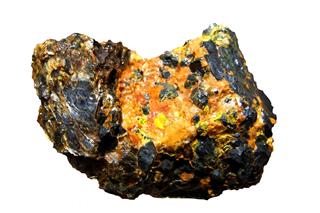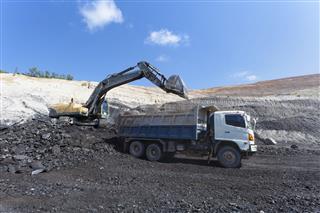
Suddenly everybody wants to educate themselves about the non renewable resources, probably because lately these resources have send in an alarming wave of being completely depleted over a few years. So, everybody is doing their bit to save these valuable resources. This article acquaints you about all the facts on non renewable resources, you always wanted to know.
Non renewable resources are those natural resources that cannot be reproduced, grown or generated. These resources are fixed and cannot be replaced whatsoever. Therefore, these resources are also called exhaustible sources of energy. And with the pace with which humans are harnessing these resources, they are sure to get depleted. In fact, a recent research shows that we can depend on these resources for a maximum 50 years, after that we have to find an alternative way for replacing these resources. Although, this problem will not affect us soon now, but we have to act now and try various ways to avoid the crisis in near future.
Many people intent to go green and are definitely doing their bit to save the environment and the non renewable sources of energy. We have seen the renewable sources like sun’s energy, wind and biomass, been harnessed to the maximum potential possible. But, baring all that, we still seem to depend on non renewable resources to a greater extent, let us study the various facts associated with these non renewable resources. These facts will educate us more, to use these resources efficiently and economically.
Quick Facts on Non Renewable Resources
Fossil Fuels
The two main type of non renewable resources are fossil fuels and nuclear fuels. Fossil fuels include coal, petroleum, natural gas, etc. Fossil fuels are formed by the pressure and heat applied to the organic matter, which lies deep down underground or under the ocean bed. These fossil fuels take around millions of years for its formation.
People will always want to turn on the television, light their houses and use all the other luxuries that run with the help of these fossil fuels. As the demand for fossil fuels are ever-increasing, harder methods are employed to find and extract more oil and its derivatives. But, by doing all this the prices of these fuels will soar and ultimately finding alternative resources to these fossil fuels will be the only viable option left with us.
Studies show that there would be trillion tons of oil that exists deep down under the ocean bed, but extraction of these would involve immense finance and sound technical support. Moreover, due to environmental restrictions oil exploration and extraction is not possible in some areas.
Although the use of natural gas amounts to 23% of total US energy consumption, it is expected to increase rapidly in near future. The problem with natural gas is, its explosive nature and the situation of reserves in far gulf countries, which make the transportation all the more difficult.
Coal statistics might relieve you a bit. The world proven coal reserves are approximated to last for at least 200 years. No, prizes for guessing; the importance of coal will soar in the near future, therefore coal prices are sure to hike.
Nuclear Fuels
Nuclear fuels make use of radioactive elements to release energy. Uranium and plutonium are the two important radioactive elements used to derive nuclear energy, which in turn is used to generate electricity on a large-scale. In fact, nuclear power provides around 14-15% of the world’s electricity.
The use of nuclear fuels is a very controversial and debatable issue, as these highly hazardous elements cause a lot of pollution, although it does not contribute to the greenhouse gases, thus thankfully do not contribute to the problem of global warming. But, the volatile nature of these elements is a matter of concern. If the reactions are not controlled and contained properly, they would escape into the environment creating dangerous situations. The Chernobyl disaster that occurred in 1986 in Ukraine was exactly because the reaction was not controlled properly. The explosion released a large quantities of radioactive elements into the atmosphere, which affected the neighboring countries as well.
We either need to find alternative resources or tame ourselves in a way that we use these valuable resources economically and to its full potential, to avoid wastage. Let’s vow to take every step we can, to save these precious resources and make the world a better place to live in!






